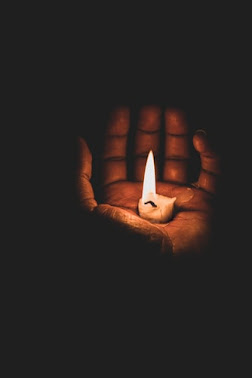Volver: A tribute to Time and tragedies
Film: Volver (2006)
Dir: Pedro Almodovar
Cast: Penelope Cruz, Carmen Maura, Lola Duenas
VOLVER
The concept of time as a circular entity has been
nearly universal throughout cultures and civilizations. In myths, legends and
scientific treatises, the arrow of time has more often than not, not been an
arrow but a wheel- from the ancient Hindu idea of the Four Yugas (or epochs) as
a cyclical procession to lengthy discussions on metempsychosis and the like and
Marx’s return (‘volver’ indeed) to communism from primitive communism as a
starting point. A more recent example comes to mind with Gabriel Garcia
Marquez's One Hundred Years of Solitude’.
But Volver is neither intensively metaphysical nor does it attempt to traverse the path of Marquez’s magical realism. It is rightly aware of what it is, where it stands, where it has started from and where it will return to. It is a simple yet layered tale of the resilience of women universally and our Spanish protagonists particularly. It is a powerful and brutally incisive story of ghosts made of flesh and bones- of memories coming to haunt and be haunted, all moving in a cycle.
Volver- literally meaning ‘coming back’ opens with the
scene of a graveyard- the point of no return. This is an early indication of
how even death is not a final destination for the women who live in this Spanish
village. We get dialogues about how women outlive the men in this village and
how the east wind makes everyone insane- all initially feeling vague and
inconsequential only to ‘return’ later with a rude shock of reality and deep
consequence as the film progresses.
The film revealing itself in layers narrating and unfolding the past while focusing simultaneously on the present and their ultimate confluence - where with brutal surprise, the audience realizes that there is more than meets the eye with these characters-more than a simple mother-daughter relationship.
Through an unconventional twisting of a feminist
device, the true strength, liberation as well as salvation that the characters
derive is from the roles and limitations they play while performing a ‘mother’,
a ‘daughter’, a ‘sister’. Their strength
is drawn from them being confined into these familial relationships and not its
abundant opposite. Rarely do we see a
male character as an ‘independent’ entity.
The crucial takeaway from Raimunda’s character remains the fact that she has the grit and determination to almost effortlessly not just survive but actually thrive in moments of unending tragedies. She has the desire to shine through and steal her moments of joy from fate itself- one such particular scene being her singing a song from her childhood, her past- perhaps when she hadn’t gone through the trauma that later unfolds. The scene in itself focusing solely on Penelope Cruz’s face and her tears symbolizes in a beautiful way a desire to cling to and immortalize vestiges of her pristine past.
Similarly, the preservation of youth and the desperation of escaping the clutches of time remains an evidently recurring
theme also represented by Sole’s parlour clientele consisting solely of older
women.
Volver remains at its core a masterful salute to those
people (especially women) transforming times of trials and tribulations into a
newer, revolutionary life for themselves. Liberation is the only way out of
this circular trap of time as we see while the film closes.







Comments
Post a Comment